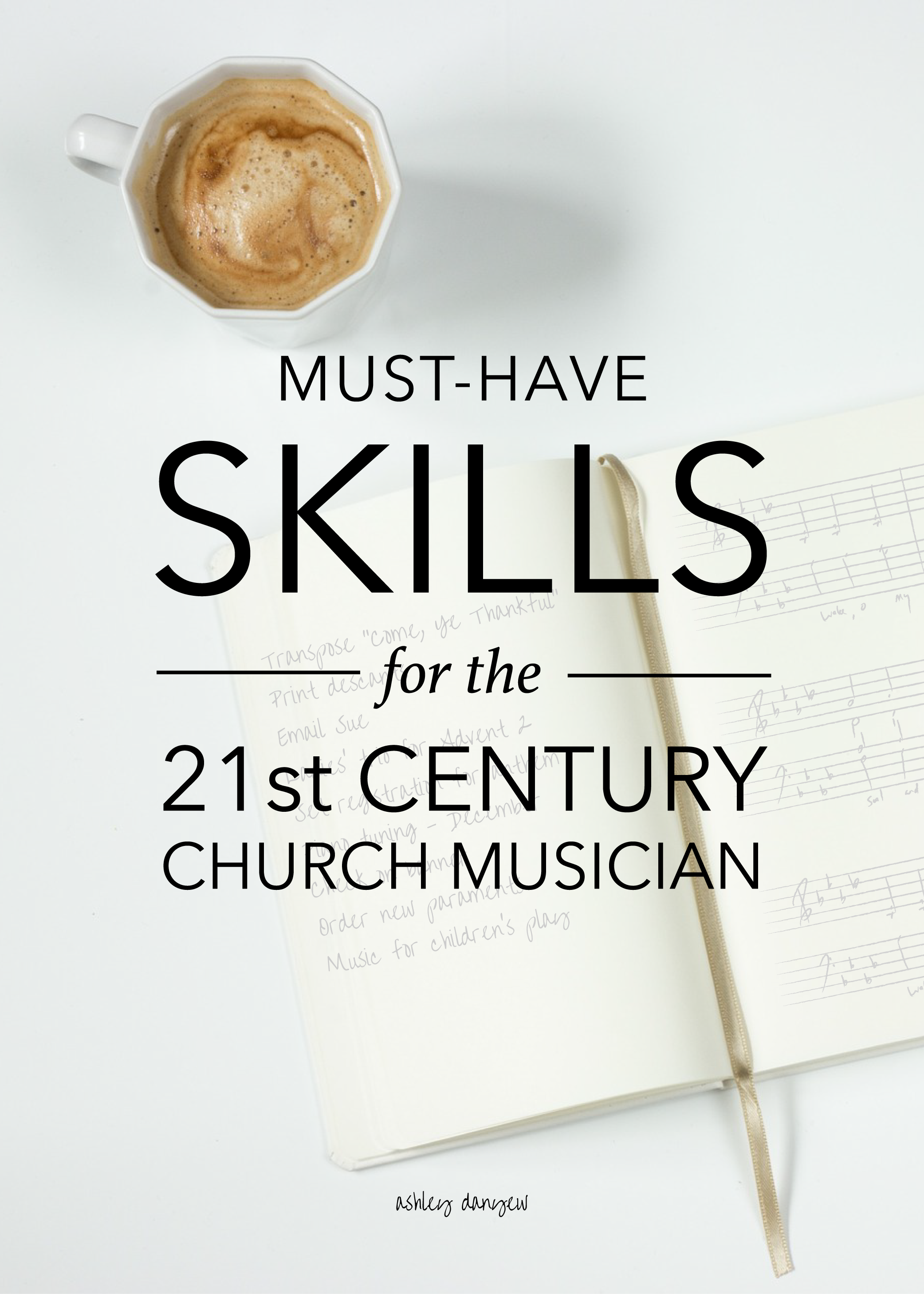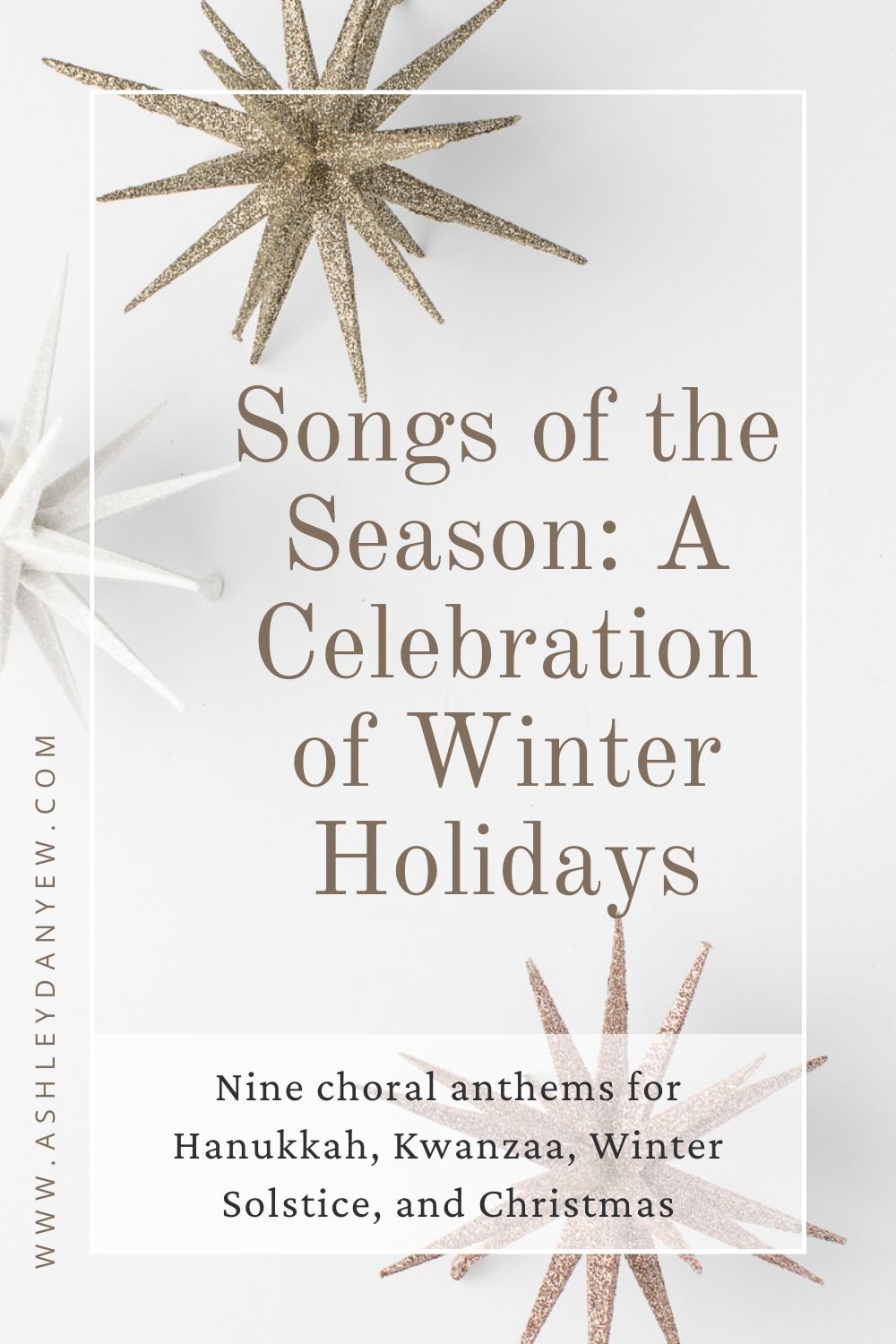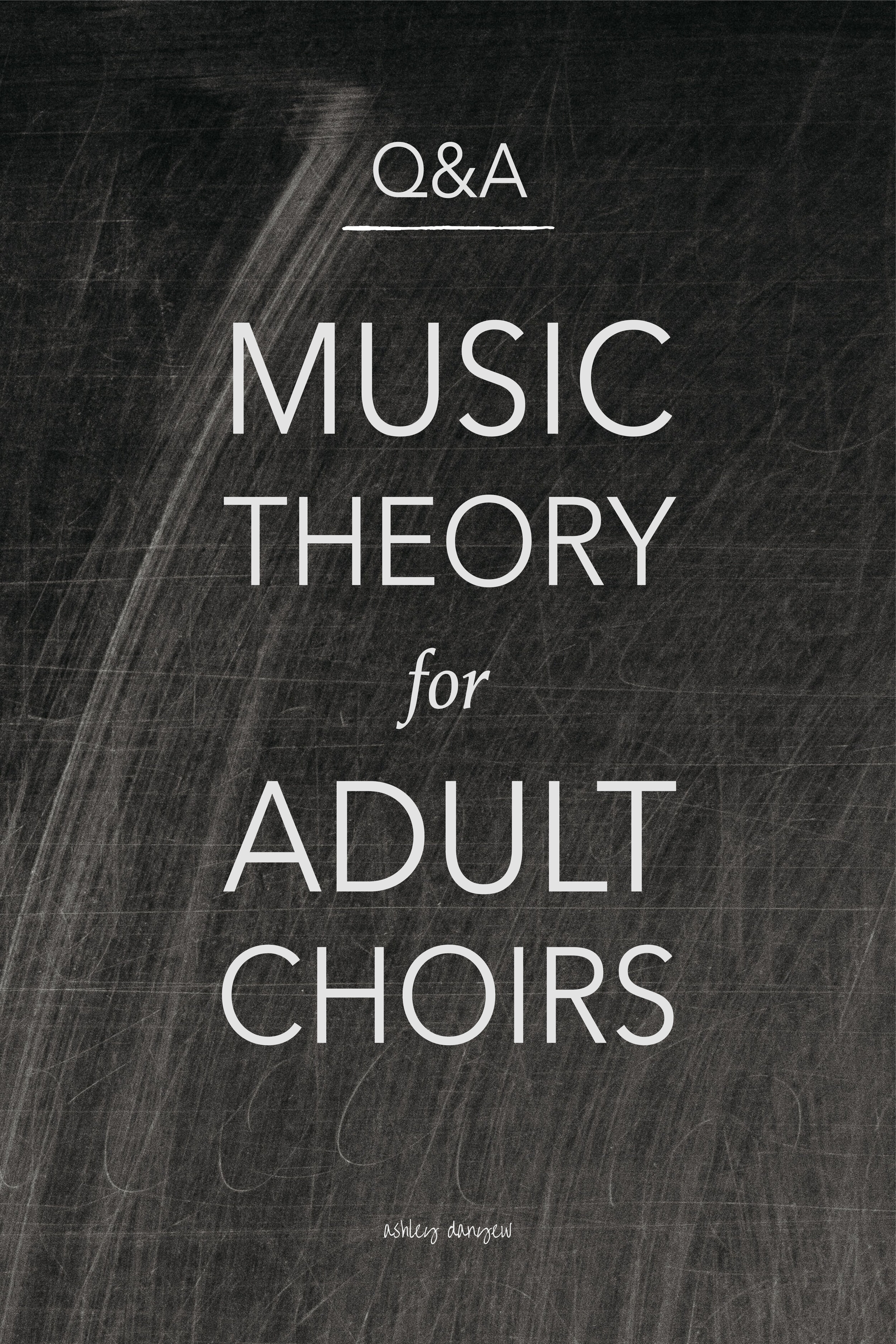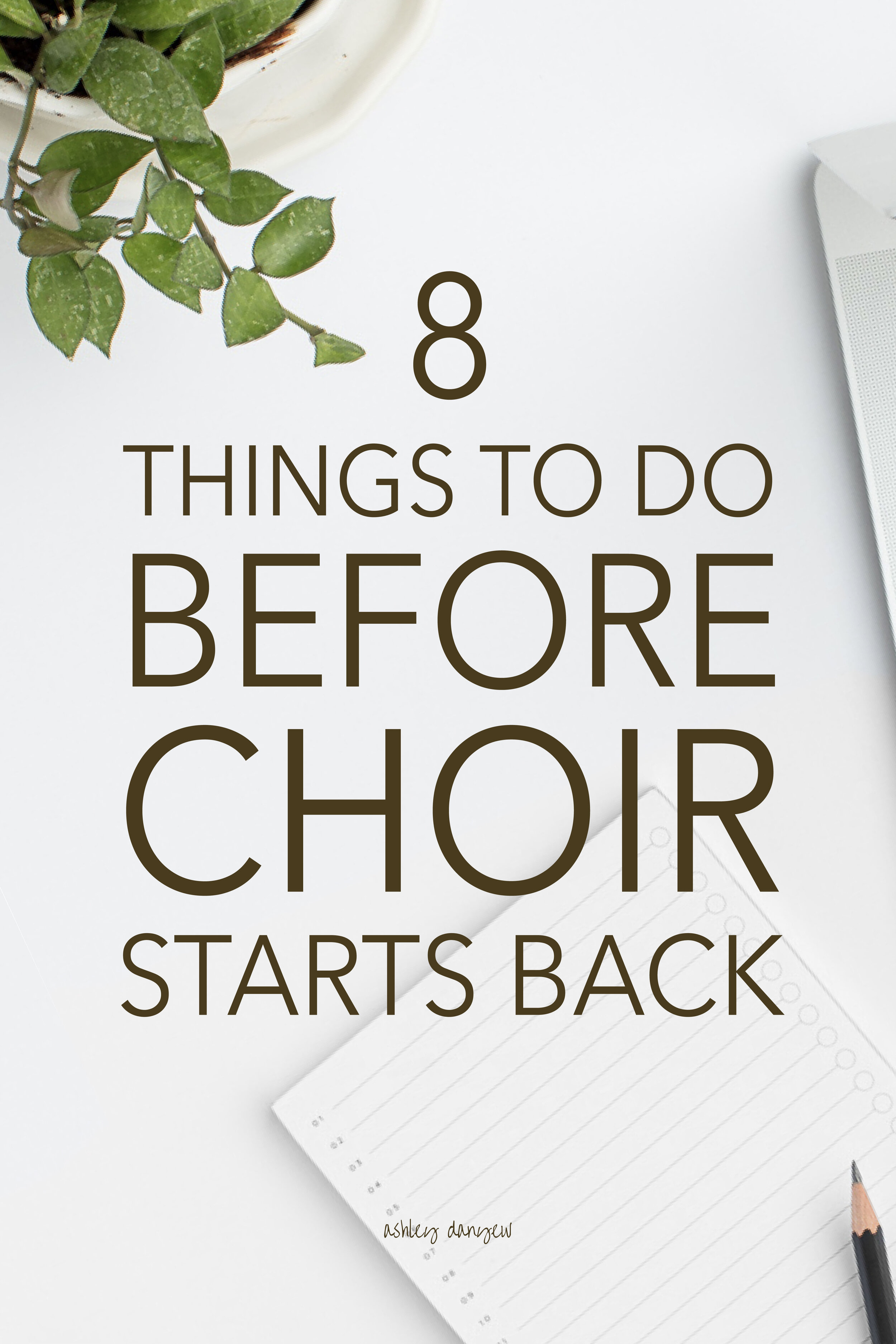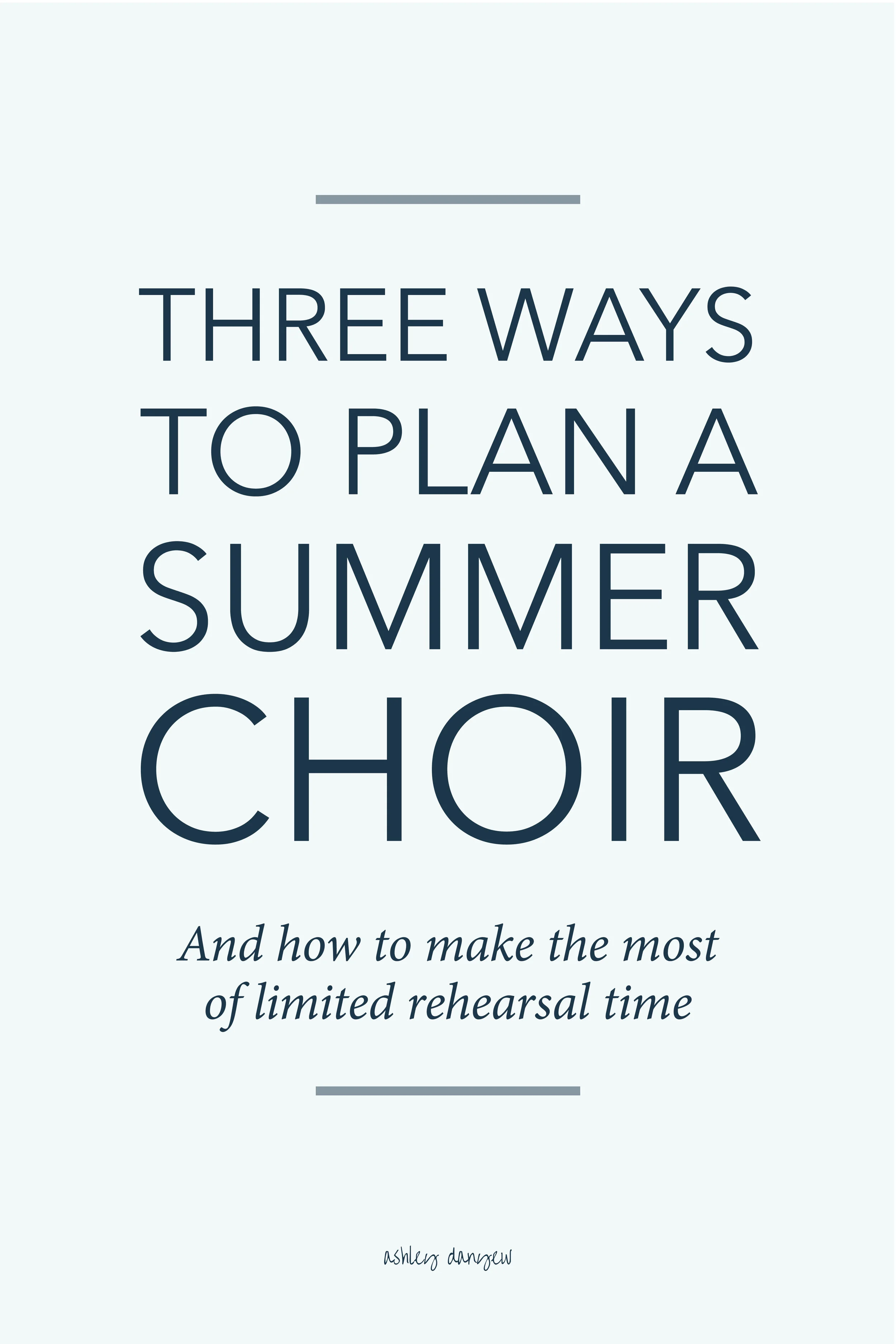I started my first "real" church job when I was 17.
It was a small United Methodist church in south Georgia with one Sunday morning service, an adult choir of about 12, and a children's choir of about six. I was still learning to play the organ at the time and played most of the service from the upright piano at the front of the church. I dove head-first into worship planning, liturgy, and choir anthems and loved every minute of it.
My next job was as a Music Intern at a large United Methodist church in North Georgia. I did administrative work for the children's choir program; accompanied the youth choir and women's choir, and adult choir, on occasion; played hymns and solo music in three weekly services; and substitute taught handbells, children's choir, and children's chime choir. I learned so much and gained so much practical experience during those two years.
Since then, I've served four other congregations as Organist/Accompanist, Music Director, Handbell Director, and now Director of Worship Arts.
All that to say—as church musicians, we wear lots of hats.
We're musicians, yes, but we're also administrators, organizers, teachers, cheerleaders, planners, team players, and spiritual leaders. Anne Burnette-Hook noted,
"There are four major roles that the church musician should be prepared to undertake in order to be an effective leader of a congregation: the congregational song leader, worship planner and leader, music educator, and spiritual leader." (source)
How do we prepare for this kind of work? What kinds of skills does a 21st-century church musician need and how are they developed or learned? Here are a few skills I've developed—mostly through experience and practice—that I use on a regular basis:
10 Keyboard Skills I Use the Most
01 | Know how to find cadence points and vamp as necessary.
This is a big one. I first developed this skill playing for weddings, but I use it all the time in worship services now. In addition to knowing where the cadences are, it's also essential to know where you can turn back to in case you need more music.
02 | Modify a piano accompaniment for organ and vice versa.
If you're a church organist/accompanist, chances are you've had to do this at least a few times. It's not difficult, but it does take a little bit of time to mark your score. Remember, the goal is to preserve the character of the accompaniment as much as possible. Bring out the bass line, preserve the chordal structure, and pay attention to dynamics and places that might call for registration change.
03 | Transpose hymns, descants, and anthems.
I don't do this a lot, but I have had to do it on occasion. Yes, music notation software will transpose things for you with the click of a button, but sometimes, I don't have time to input everything into the computer. Basic transposing skills will come in very handy.
04 | Compose descants or simple obbligato parts.
Sometimes, it's hard to find a descant that will work for your sopranos or an obbligato a student instrumentalist can play. In these cases, I've found it useful to write my own short part to accompany whatever hymn or anthem we're doing that day. Don't let the lack of available descants hinder what you do or who can play/sing!
05 | Improvise transitions and create musical underscores.
I just wrote a post about this, actually. Read more about how I create my own doxology transitions here.
Related post: How to Create Your Own Doxology Transitions
06 | Basic conducting skills.
I took basic conducting and choral conducting in college and these skills have served me well throughout my career so far. Even though I don't conduct on a weekly basis, I have been called upon (sometimes at the very last minute!) to conduct the choir, handbells, and even a brass choir once. You just never know.
07 | Play blocked chords and 5-finger patterns in all keys.
This skill is vital for choir warm-ups. The ability to play a blocked or broken triad in every (major and minor) key and a variety of 5-finger patterns to match the choir's vocal warm-ups are invaluable for the choral accompanist, and director if you're an all-in-one!
08 | Develop strong sight-reading skills.
This is especially useful for those Sundays when the congregation does an open hymn-sing (where members raise their hands and call out a hymn number to sing).
09 | Read open-score.
Open score means that each vocal part is written on its own line instead of traditional Grand Staff notation. This means you have to read four lines of music at once if playing SATB choral parts. This can be tricky if your eye is not used to reading four lines at once and takes a little practice to do it proficiently. You probably won't need to do this all that often, but it's good to develop the basic skill so you can do it in a pinch if needed. Here are a few tips.
Related post: 3 Tips for Playing Open Score (for Choral Accompanists Everywhere)
10 | Be flexible.
This is another accompanying skill, but one worth mentioning. The ability to be flexible—to respond at a moment's notice to what the choir or an ensemble or the congregation needs—is invaluable, in rehearsal, but also in worship. This requires careful listening, quick reflexes and reading skills, and a degree of sensitivity.
Want to develop some of these skills yourself?
Join me in The Church Musician Primer, an online keyboard skills class for church music directors, keyboardists, and organists to help you learn and develop must-have 21st-century music skills.
Here are a few other valuable skills for church musicians in the 21st century:
Must-Have Skills for the 21st-Century Church Musician
Musical
Play standard four-part notation (hymnal, songbook, choral) (source)
Provide chordal accompaniment from a lead sheet or chord chart (source)
Have solid musical skills in many genres: church music today spans traditional masses to singing from the hymnal to playing with a worship band and reading chord charts (source)
Play solo music (source)
Know how to combine the ranges/timbres of the piano/keyboard/organ with other instruments and voices (source)
Adapt range and chordal texture to accompany singing by groups of various sizes (source)
Spiritual
Be a music educator: work to develop musical skills in others and demonstrate how those skills can be used to share the gospel (source)
Understand the liturgy, church seasons, and the eucharist (source)
Understand the role of ministry in the larger work of the church (source)
Understand the role of music in the liturgy (source)
Be a spiritual leader (source)
Leadership
Value worship diversity—musical, artistic, and cultural (source)
Develop good people skills (source)
Be creative—value change and innovation (source)
Value what is meaningful to others more than your own contributions (source)
Work collaboratively with others (source)
Develop good communication and time management skills (source)
Equip and lead the congregation in song (source)
Plan creative and innovative worship that helps people experience and worship God (source)
I’d love to hear from you:
What skills are invaluable to you in your work as a church musician?
Read more:
The Rewards and Challenges of Being a Director/Accompanist
3 Tips for Playing Open Score (For Choral Accompanists Everywhere)
Score-Study for Church Musicians
Sources:
Skills for Modern Church Pianists
8 Characteristics of a Music Leader of the Future
9 Aspects of Being a Great Music Ministry Leader
25 Ways to Become a Better Church Musician
The Work of Music Leaders
5 Essential Characteristics of Worship Musicians
A Preliminary Syllabus for the Formation of Church Musicians


